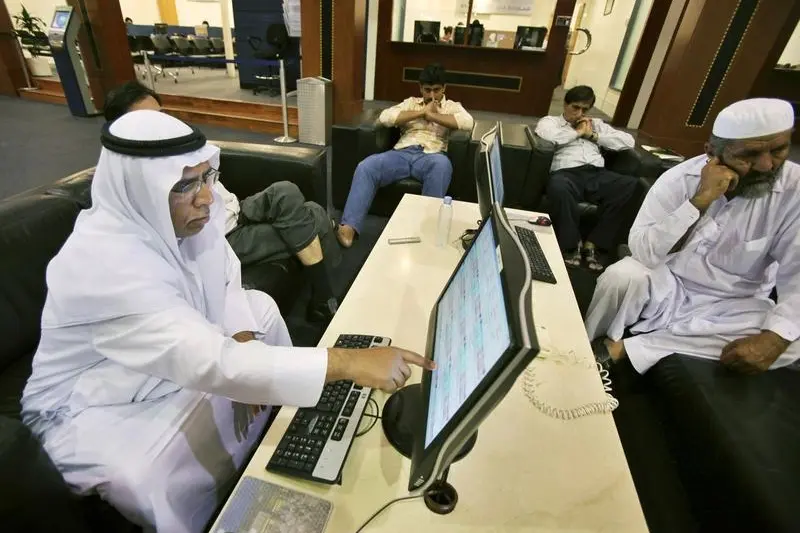PHOTO
DUBAI, July 21 (Reuters) - A strong global backdrop may support Gulf stock markets on Thursday, although the latest corporate earnings in the region are mixed.
MSCI's broadest index of Asia-Pacific shares outside Japan
This may encourage buying in markets such as Dubai
On Wednesday Emaar climbed 1.7 percent to 7.02 dirhams, its highest close in 11 months, in active trade. It closed above technical resistance on its October 2015 peak of 7.01 dirhams; another such close on Thursday would trigger a reverse head & shoulders pattern formed by the highs and lows since last August and pointing up in the long term to at least the April 2015 peak of 8.39 dirhams.
However, some of the latest Dubai second-quarter earnings are weak. Mashreq bank
Second-tier real estate firm Deyaar Development
In Saudi Arabia, Yanbu National Petrochemical Co
But Dar Al Arkan
In Kuwait, telecommunications operator Viva Kuwait
VIVA.KW
reported a 15 percent fall in quarterly profit to 9.57 million dinars ($31.65 million); SICO Bahrain had predicted 10.32 million dinars.
In Egypt, the central bank governor said after the close on Wednesday that the time was not right to float the Egyptian pound, which has come under intensifying pressure in recent weeks, though he left the door open to a possible devaluation. The uncertainty is unlikely to be seen as positive by the stock market, which has been hit hard by fears of a currency crash and further interest rate hikes.
(Reporting by Andrew Torchia) ((andrew.torchia@thomsonreuters.com)(+9715 6681 7277)(Reuters Messaging: andrew.torchia.thomsonreuters.com@reuters.net))
MSCI's broadest index of Asia-Pacific shares outside Japan
This may encourage buying in markets such as Dubai
On Wednesday Emaar climbed 1.7 percent to 7.02 dirhams, its highest close in 11 months, in active trade. It closed above technical resistance on its October 2015 peak of 7.01 dirhams; another such close on Thursday would trigger a reverse head & shoulders pattern formed by the highs and lows since last August and pointing up in the long term to at least the April 2015 peak of 8.39 dirhams.
However, some of the latest Dubai second-quarter earnings are weak. Mashreq bank
Second-tier real estate firm Deyaar Development
In Saudi Arabia, Yanbu National Petrochemical Co
But Dar Al Arkan
In Kuwait, telecommunications operator Viva Kuwait
In Egypt, the central bank governor said after the close on Wednesday that the time was not right to float the Egyptian pound, which has come under intensifying pressure in recent weeks, though he left the door open to a possible devaluation. The uncertainty is unlikely to be seen as positive by the stock market, which has been hit hard by fears of a currency crash and further interest rate hikes.
(Reporting by Andrew Torchia) ((andrew.torchia@thomsonreuters.com)(+9715 6681 7277)(Reuters Messaging: andrew.torchia.thomsonreuters.com@reuters.net))





















